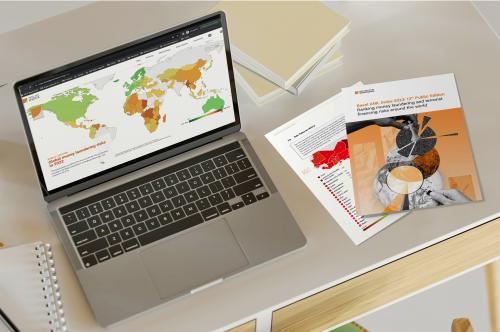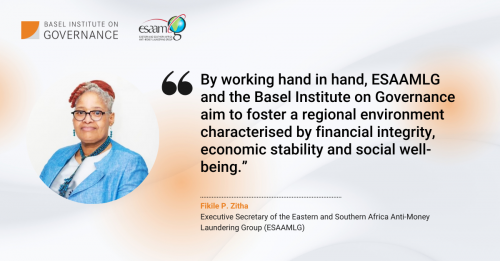FCPA Blog: Basel AML Index – Going beyond the money laundering leaderboard
This blog was originally published on the FCPA Blog, which was discontinued in February 2024.
Last week’s publication of our 10th annual Basel AML Index – which assesses money laundering risks around the world and ranks jurisdictions on how well they’re addressing them – has triggered two types of response.
As usual, people first want to see how their country is doing on the AML/CFT “league table.” How is the country ranked compared to its neighbors? Has the risk score gone up or down? Sadly, the answer to that last question is: mostly up. The average global money laundering risk score increased slightly this year from 5.22 to 5.3 out of 10.
Numbers do lie
This kind of league table response hits headlines, but it misses the point. The point of the Basel AML Index is to illuminate weaknesses in national, regional, and global financial systems that leave them open to abuse by money launderers, those financing terrorism, and other criminals. After all, the fight against corruption and money laundering is not a competition but a team effort.
Some of the weaknesses revealed by the Basel AML Index are caused by the continuous evolution of financial crime typologies. Ten years ago, for example, cryptocurrencies were barely heard of; now, as our report explores, regulators and reporting entities are scrambling to get on top of the risks.
Important takeaways beyond the ranking
In other areas, not all jurisdictions are scrambling enough. Our analysis, for example, supports growing concerns that beneficial ownership transparency is not being implemented as fast or as effectively as it should be. This is not only a problem for law enforcement seeking information on suspected criminals or for financial institutions trying to conduct customer due diligence in the dark. It undermines global efforts to combat corruption and money laundering because it leaves opaque spots on the world map where criminals can set up anonymous corporate structures to launder their illicit money.
Then we have the blind spots. This year, we have shone a light on money laundering risks beyond the financial sector. Data-crunching shows that lawyers, accountants, real estate agents, and other designated non-financial businesses and professions (DNFBPs) continue to underperform on compliance with AML/CFT standards. Tighter regulations, more supervision, and credible enforcement are urgently needed to close that gap.
Lastly, and most disappointingly, weaknesses that we have pointed out year after year since the first edition of the Basel AML Index have barely been addressed. The effectiveness of AML/CFT systems is the elephant in the room here. On average, countries assessed by the FATF for the effectiveness of their AML/CFT frameworks score a woeful 30 percent. This means it is still all too common for jurisdictions to have laws and institutions in place that are largely compliant with FATF Recommendations yet ineffective in practice.
Tired of repeating this message, this year, we looked more closely at the data to see whether the problem was prevention, enforcement, or both. We saw that jurisdictions consistently score even worse for the prevention of money laundering than they do for enforcement. Why this is, is an excellent question to ask and a hard one to answer. Unlike for enforcement, there is very little hard data to measure the effectiveness of preventive measures.
Looking forward
Smart governments, or those that mean what they preach, will look at this and invest more resources in preventing money laundering and terrorist financing. A fire contained is always better than an arsonist caught when the house has burnt down. This obviously shouldn’t come at the expense of enforcement because arsonists also have to be caught and punished.
And if all players in government and the private sector work to better understand and address their money laundering risks – as well as keep up with global trends like those above – maybe, just maybe, all countries will creep up the Basel AML Index league table next year.





